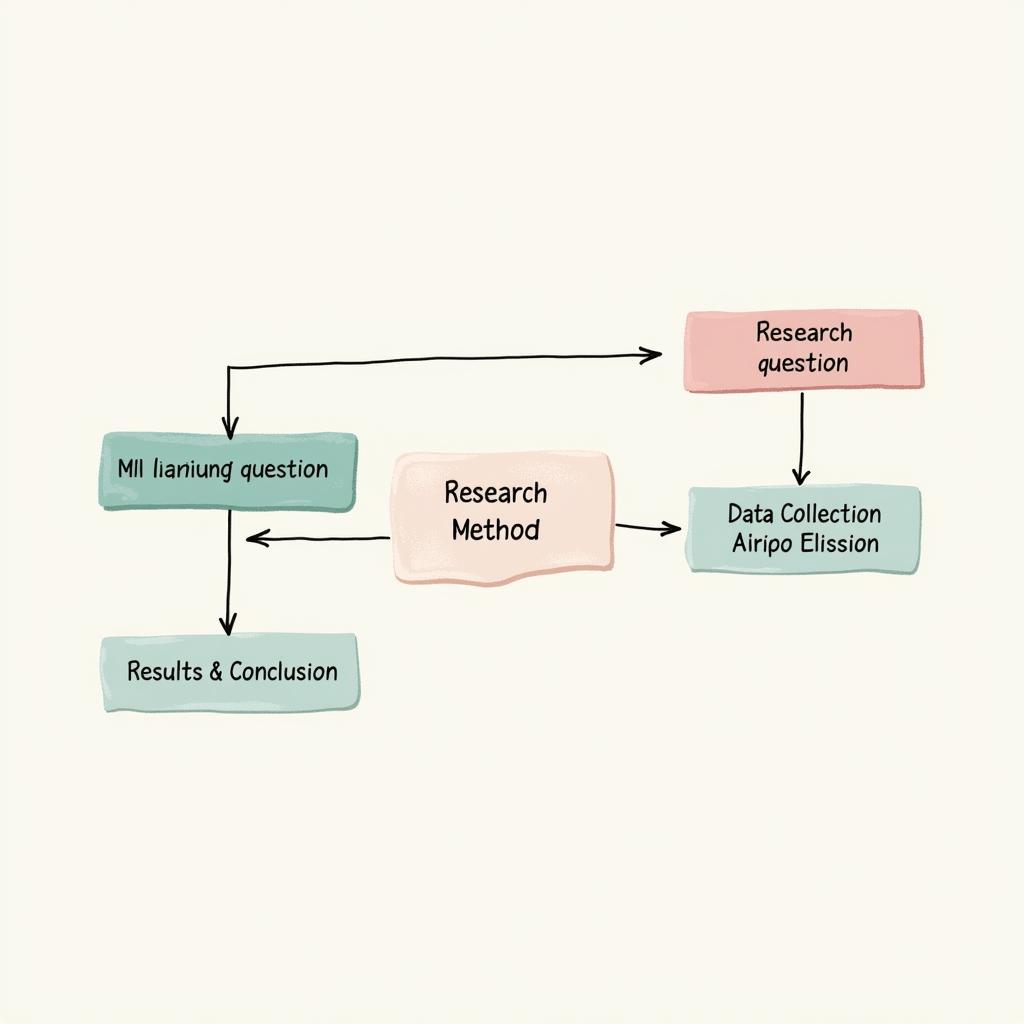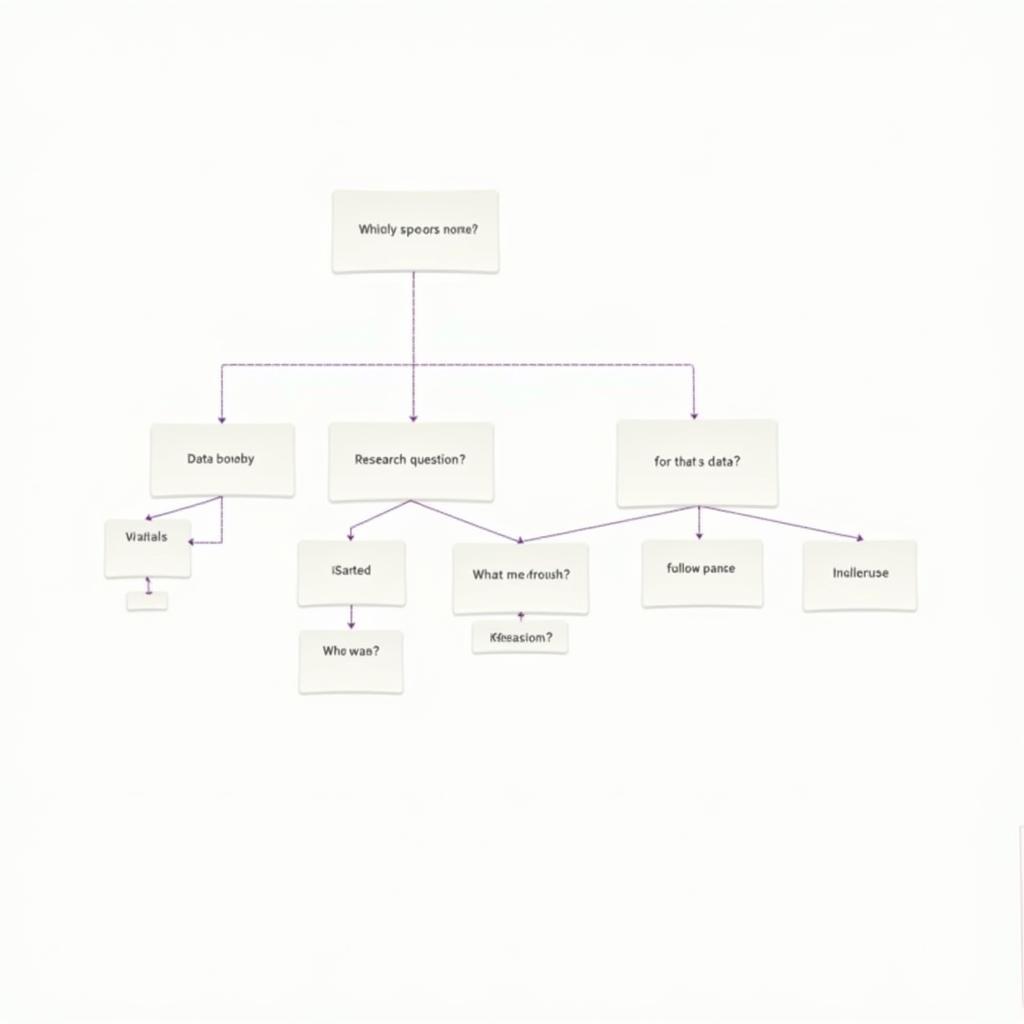When you delve into the world of academic writing, the term “research methods” frequently pops up. But what exactly does it mean, and why is it so crucial to a research paper’s credibility? In essence, research methods are the tools and techniques researchers use to gather and analyze data, ensuring that their findings are as accurate and reliable as possible.
Unraveling the Significance of Research Methods
Imagine trying to bake a cake without a recipe. You might end up with something edible, but it’s unlikely to be the delicious treat you envisioned. Similarly, research methods provide the framework for conducting a study. They dictate how you collect data, what kind of data you collect, and how you analyze it to answer your research question.
 Research Methods Framework
Research Methods Framework
Without robust methods, your research risks being perceived as anecdotal, subjective, or simply lacking in rigor. Choosing the right methods is like selecting the right ingredients and following the recipe carefully to ensure a successful outcome.
Commonly Used Research Methods
The world of research methods is vast and varied, much like the research questions they aim to answer. Here are some commonly employed methods:
1. Surveys: This quantitative method involves collecting data from a group of people through questionnaires, typically with the aim of generalizing the findings to a larger population.
2. Interviews: This qualitative method delves deeper, exploring individual experiences and perspectives through structured or semi-structured conversations.
3. Experiments: Often used in scientific fields, experiments involve manipulating variables in a controlled environment to establish cause-and-effect relationships.
4. Case studies: This method focuses on a particular individual, group, or situation, providing a detailed analysis of a specific phenomenon.
5. Observational studies: Researchers observe and record behaviors and events in natural settings, providing insights into real-world phenomena.
Choosing the Right Research Methods
Selecting the most appropriate method depends on your research question, the nature of your study, and the resources available. Here are some key considerations:
-
Nature of your research question: Are you exploring a social phenomenon, testing a hypothesis, or analyzing existing data?
-
Qualitative or quantitative data: Do you need numerical data or in-depth insights?
-
Feasibility and resources: Consider the time, budget, and access to participants required for each method.
 Choosing the Right Research Methods
Choosing the Right Research Methods
The Impact of Research Methods on a Research Paper’s Credibility
“Thorough research methods are the backbone of a credible research paper,” says Dr. Emily Carter, a research methodologist at the [the seattle university crime and justice research cente](https://midatlanticparanormalresearch.com/the-seattle-university-crime and justice-research-cente/). “They demonstrate to your audience that your findings are based on a sound and systematic approach, increasing the trustworthiness of your conclusions.”
A well-articulated methods section allows readers to assess:
-
Validity: Do the methods measure what they intend to measure?
-
Reliability: Would the study produce consistent results if replicated?
-
Generalizability: Can the findings be applied to a larger population or context?
Conclusion
Understanding and effectively utilizing research methods is paramount to producing credible and impactful research. By carefully choosing and meticulously implementing these tools, researchers can ensure that their findings contribute meaningfully to their field of study. Remember, the journey of research is as important as the destination, and the methods you choose pave the path to credible and impactful discoveries.